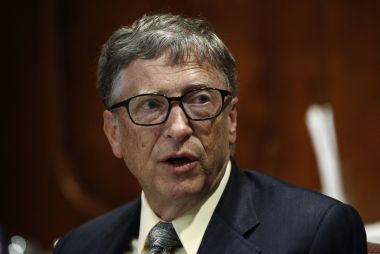Richest one per cent to own more than half of global wealth, says Oxfam

A damning report claims that "staggering" global inequality means the combined wealth of the richest 1 per cent of the world is set to overtake the rest of the population in 2016.
Released just before the annual World Economic Forum in Davos, the report by Oxfam warns that "Global wealth is becoming increasingly concentrated among a small wealthy elite", while a billion people are forced to live on less than $1.25 a day.
Titled "Wealth: Having it all and wanting more", the report claims that the wealthiest 1 per cent, a list of 80 people including Bill Gates and Mark Zuckerberg, saw their share of global wealth increase from 44 per cent in 2009 to 48 per cent in 2013. If this trend continues at the current rate, it will exceed 50 per cent next year.
Winnie Byanyima, Executive Director of Oxfam International, said in a statement released ahead of the conference: "Do we really want to live in a world where the one per cent own more than the rest of us combined? The scale of global inequality is quite simply staggering and despite the issues shooting up the global agenda, the gap between the richest and the rest is widening fast."
Byanyima criticised world leaders for promising to tackle extreme inequality, but failing to "walk the walk".
"It is time our leaders took on the powerful vested interests that stand in the way of a fairer and more prosperous world," she said.
"Business as usual for the elite isn't a cost free option – failure to tackle inequality will set the fight against poverty back decades. The poor are hurt twice by rising inequality – they get a smaller share of the economic pie and because extreme inequality hurts growth, there is less pie to be shared around."
Byanyima will co-chair the forum in Davos, and has pledged to use Oxfam's high-profile to further its agenda. It is calling on governments to reduce tax dodging, invest in health and education and promote gender-equality through economic policies, among other goals.
Laura Taylor, Head of Advocacy at Christian Aid, said of the report's findings: "Inequality not only makes fighting poverty harder, but can also undermine democracy and make conflict more likely.
"Given that we all share one planet, which is already struggling to tackle climate change, over-consumption by some makes sustainable development much harder for others. We only have one planet and it is vital that we work out how to share its finite resources in a fairer way."











